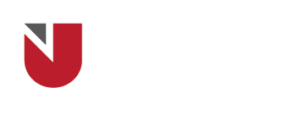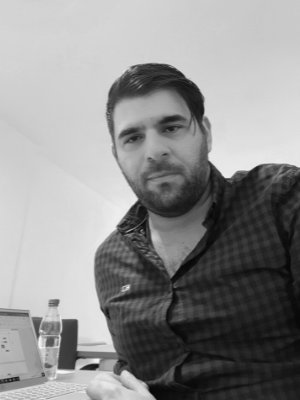Phonetic Lab
The Phonetic Lab, affiliated with the Department of Languages and Literature (School of Humanities and Social Sciences), is a specialized facility equipped with resources and equipment dedicated to the study and analysis of speech sounds, their production, and acoustic properties. It primarily serves researchers such as linguists, psychologists, and speech-language pathologists, who investigate various aspects of human speech and language. Currently, the Lab collaborates with a wide network of individual researchers and several international academic societies, organizations, and labs. The Director of the Lab is Dr Georgios Georgiou, Assistant Professor of Linguistics.
About
The Phonetic Lab opened in 2023. It comprises a specialized facility with resources and equipment for the study and analysis of speech sounds, their production, and acoustic properties. It is primarily used by researchers such as linguists, phoneticians, and speech-language pathologists to investigate various aspects of human speech and language. The Director of the Lab is Dr Georgios Georgiou, Assistant Professor of Linguistics. The lab is located in the Education Building of the University of Nicosia, room 305a, 3rd floor, and is affiliated with the Department of Languages and Literature.
Within the Phonetic Lab, researchers and experts have access to a wide array of tools and technologies tailored for in-depth investigations. The facility is outfitted with top-quality recording equipment, including high-fidelity microphones and digital recorders, ensuring the precise capture and storage of speech samples. Moreover, it provides a meticulously designed soundproof room that creates an environment conducive to high-quality speech recordings. Sophisticated analysis software are available to facilitate the examination and manipulation of recorded speech data. The lab also provides dedicated experimental setups for conducting research in speech perception, phonemic categorization, and related areas. These setups encompass computer-based experiments, eye-tracking systems, and other specialized equipment, facilitating a deeper understanding of how speech is perceived and processed.
Aims
- 1Contribute to the field of phonetics and linguistics by making new discoveries and expanding our understanding of speech sounds and other language structures.
- 2Foster collaboration across various academic disciplines and explore the intersections of phonetics and linguistics with other areas of study.
- 3Provide educational resources and support for students and researchers interested in phonetics and linguistics.
- 4Develop practical knowledge and tools that enhance clinical practices, particularly in fields like speech therapy and audiology.
- 5Engage with the community through outreach programs, public lectures, and partnerships with schools and organizations.
- 6Collaborate with researchers and institutions worldwide, enriching global phonetics research.
Staff
Research
The lab’s researchers are currently working on a variety of research projects. This is an indicative list of ongoing projects.
L2 speech perception and the role of phonological short-term memory and nonverbal intelligence
Perception of Catalan vowels by Greek speakers
Attention control and discrimination of Greek consonants by Mandarin Chinese speakers
Speech production by Albanian heritage speakers in Greece
Grammatical structures produced by Greek heritage speakers in Chile
Child-directed speech in a bidialectal context
Acoustic features of speech sounds recorded using different recording devices
Machine learning algorithms and L2 speech perception
Speech production and communication disorders
Publications
An indicative list of the lab’s publications
Georgiou, G. P. (2023). Comparison of the prediction accuracy of machine learning algorithms in crosslinguistic vowel classification. Scientific Reports, 13, 15594.
Georgiou, G. P. & Dimitriou, D.(2023). Perception of Dutch vowels by Cypriot Greek listeners: to what extent can listeners’ patterns be predicted by acoustic and perceptual similarity? Attention, Perception, and Psychophysics. doi: 10.3758/s13414-023-02781-7
Georgiou, G. P. & Giannakou, A. (2023). Discrimination of L2 vowel contrasts and the role of phonological short-term memory and nonverbal intelligence. Journal of Psycholinguistic Research.
Georgiou, G. P. (2023). Speakers of different L1 dialects with acoustically proximal vowel systems present with similar nonnative speech perception abilities: Data from Greek listeners of Dutch. Speech Communication, 150, 32-40.
Georgiou, G. P. (2023). Nonverbal Intelligence Does Matter for the Perception of Second Language Sounds. Psych, 5(1), 123-132.
Georgiou, G. P. (2022). The acquisition of /ɪ/–/iː/ is challenging: Perceptual and production evidence from Cypriot Greek speakers of English. Behavioral Sciences, 12(12), 469.
Georgiou, G. P. (2022). Acoustic markers of vowels produced with different types of face masks. Applied Acoustics, 191, 108691.
Partners
The Phonetic lab is currently collaborating with a wide net of individual researchers, and has signed memorandums of collaboration with several international academic societies, organizations, and labs. The full list will be updated soon.





